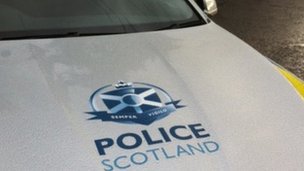The use of face-recognition technology to help catch criminals has been defended by Police Scotland.
The Liberal Democrats voiced fears a hi-tech computer system, that matches mugshots with CCTV footage, could be used for “mass surveillance” with a detrimental impact on civil liberties.
Since last year photos of everyone charged with a crime in Scotland has been fed into the UK Police National Database (PND).
The Lib Dems expressed concerns that pictures of innocent people are retained for use by police forces all over the country.
But Police Scotland said suspects who are not convicted are “weeded” – removed from the system – once they receive a report that a case has been dropped.
There have been 601,837 mugshots of 334,594 Scots uploaded to the PND, which has been used by Police Scotland 440 times for facial recognition, according a freedom of information (FoI) request by the Scottish Lib Dems.
The party’s justice spokeswoman Alison McInnes said the technology could be a useful crimefighting tool but the database combined with facial recognition software had triggered concerns over civil liberties having been “condemned” by the High Court, a UK parliamentary committee and the independent Biometrics Commissioner.
“Without adequate legal safeguards, there is nothing to stop the police from using this technology for mass surveillance,” the North-east MSP said.
“It could be used to identify protesters at political events or football fans, stifling freedom of speech. I also have real concerns that the privacy of innocent people could be comprised and they could be exposed to the risk of false identification.”
Detective Chief Inspector Russell Penman, of Police Scotland’s specialist crime division, the force had been using PND since 2014 and facial search was a tool that can be used for “intelligence development purposes”.
“It is not used for formal photographic identification procedures, although it does provide intelligence around the suspected identity of an individual whose image has been taken and searched,” he said.
